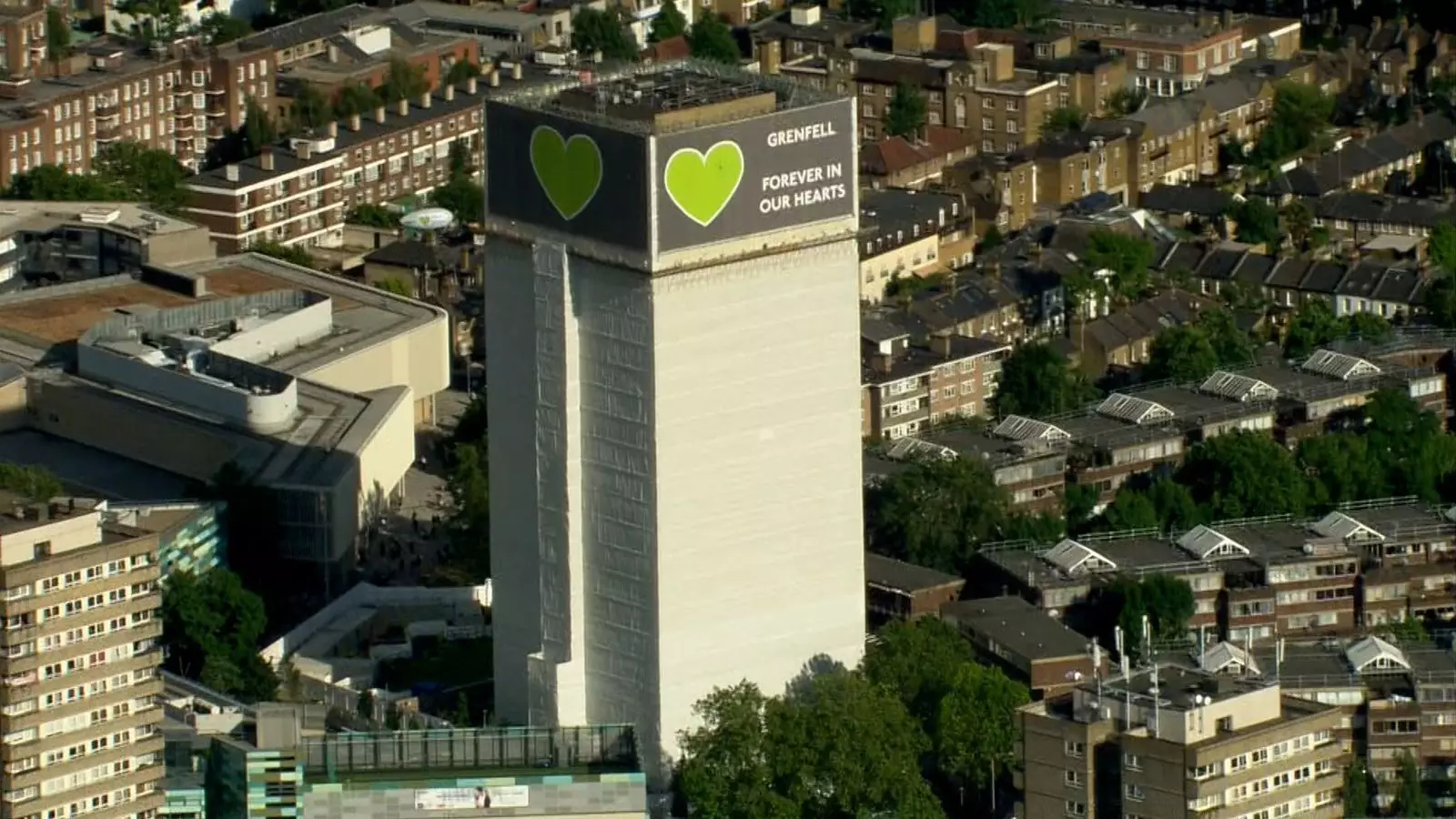The Grenfell Tower tragedy, which tragically claimed the lives of 72 individuals in June 2017, has become a symbol of systemic failures within governmental and infrastructural frameworks in the UK. With eight years passed, the recent announcement regarding the demolition of the tower has reignited the wounds of bereaved families and survivors. The government, under Deputy Prime Minister Angela Rayner’s leadership, has faced intense criticism from Grenfell United, a group representing the bereaved and survivors, who have accused the authorities of sidelining the emotional needs and opinions of those most affected by this catastrophe. In essence, the recent discourse surrounding the tower’s fate has highlighted an ongoing struggle for justice, remembrance, and, fundamentally, the respect and dignity owed to the victims and their families.
Grenfell United has vocally expressed its discontent, stating that individuals affected by the fire were effectively ignored during a purportedly “short” consultation period. The conduct of Ms. Rayner has been labeled “disgraceful and unforgivable.” The discontent in the room during a recent meeting indicated a disturbing absence of support for the demolition decision, raising questions about the efficacy and sincerity of the government’s engagement with those who are still in mourning. A disconnect seems to prevail between governmental declarations and the sentiments expressed by the bereaved, leaving one to ponder whether their grief is being adequately honored in this daunting process.
The government’s rationale for demolition rests on assertions that the decision is a “deeply personal matter” for those affected. This framing implies a recognition of the emotional weight carried by survivors and the bereaved. However, it raises other pressing questions: Is this decision truly reflective of their wishes, or is it a fast-tracked solution aimed at silencing ongoing debates surrounding the tower? The insufficient clarity provided by Ms. Rayner regarding consultation outcomes further fuels skepticism and feelings of betrayal among surviving families.
Despite government assertions of ongoing commitment to “keeping their voice at the heart” of decisions, those who live with the legacy of this disaster feel increasingly marginalized. The stark reality observed in the meeting underscores the inadequacies in the government’s approach, suggesting that a more robust engagement strategy is desperately needed. The question remains: how can the governing body reconcile its decisions with the heartfelt calls for a commemorative solution that reflects the memories of the deceased and serves as a healing space for the community?
Grenfell Next of Kin, another influential group representing bereaved families, characterizes the demolition conversation as one filled with “uncomfortable truths” and “pain.” The notion that ongoing discussions lead only to further division and emotional distress unveils a tragic irony; the very mechanism intended to foster closure and healing has instead plunged families deeper into grief. Despite the government’s attempt at fostering dialogue, the feedback derived from survivors highlights an essential gap in understanding how to best memorialize the tragedy and honor those lost.
Survivors are demanding more than a decision about demolition; they invite discussions about what should rise in the tower’s place. This demand for tangible suggestions echoes a desire not just to memorialize but to reimagine a future where these painful memories can exist alongside sanctity and remembrance. The desire for a respectful commemorative space indicates a larger movement toward healing—not just for families and survivors but for a community that still bears the scars of negligence.
The inquiry into the Grenfell Tower fire presented a harsh reality—a recognition of “systematic dishonesty” and failures from authorities. With recommendations for accountability still pending, particularly in terms of criminal charges, the unresolved nature of justice adds another layer of complexity to the ongoing struggles of those affected. As the Metropolitan Police indicated that decisions regarding charges may not be made until the end of 2026, it becomes increasingly important that the needs of bereaved families be prioritized while attempting to navigate these tangled, often torturous paths toward closure.
With each passing year, the need for reflective practices and genuine engagement with affected communities becomes paramount. The Grenfell Tower tragedy is not merely a historical event but an ongoing call to action that insists on transparency, accountability, and a compassionate approach to healing. Without these essential changes, the mission to honor the memories of those lost remains a challenging, yet vital, endeavor. The voices of survivors and bereaved families must not only be heard but celebrated as integral components in the journey toward remembrance and reconciliation.


Leave a Reply